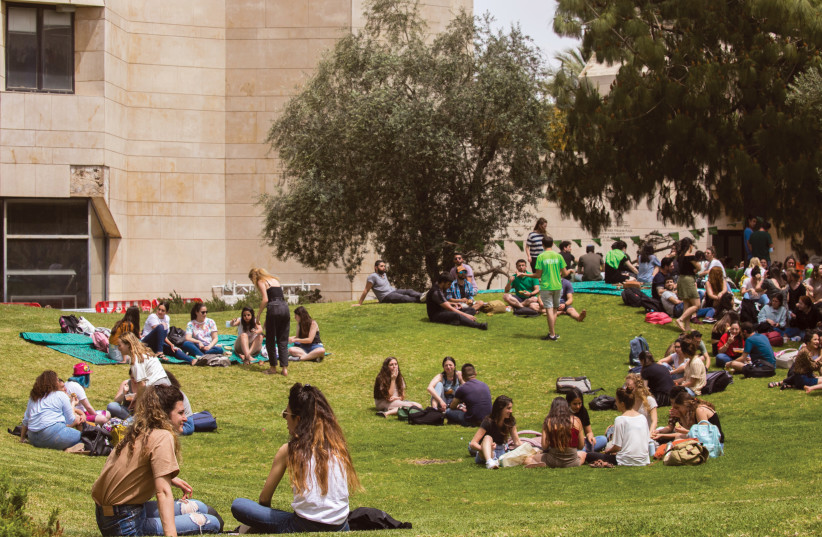Under the specter of both the coronavirus and rising antisemitism, last year proved to be one of the most difficult for Jews on campus in modern times.
For students of all creeds, COVID-19 changed their college experience into something completely unfamiliar. Gone were lecture halls, seminar rooms and labs filled with students deliberating and discussing shoulder to shoulder. No longer were dining halls packed with students sitting side by side eating and talking, worried about the reading they needed to finish or an upcoming exam. And large social gatherings, events and parties were something of a distant memory or perhaps lore handed down by upperclassmen.
So many of the hallmarks of college life were replaced with just the bare essentials. Class via Zoom. Meals alone. Gatherings small, socially distanced and infrequent.
Despite the stark situation, one area of university life nonetheless persisted: Jewish life on campus. Through the Mosaic United Campus Pillar alone, since the start of the coronavirus pandemic more than 20,000 young Jews were engaged across 400+ campuses worldwide. Thanks to our partners – Hillel International, Chabad on Campus International and Olami – Jewish life changed and evolved to reach students in new and interesting ways.
Friday night services left the building and went into the great outdoors. Shabbat dinners were converted into to-go “Sha-boxes” and “Sha-bags,” so small groups could carry on the tableside tradition. And classes and Jewish learning made the jump from in-person to live, interactive video streams on students’ personal devices – whether they were on campus or even at faraway homes.

But COVID-19 was not the only disease casting a shadow over campuses. The endemic virus of antisemitism gained strength from the coronavirus with conspiracy theories gaining ground, only to explode with the May clashes between Hamas and Israel.
Anti-Israel resolutions took center stage at student government meetings, and student social media often called out Jews. Antisemitic graffiti defaced halls of higher learning. Anti-Jewish verbal and physical attacks took place at universities across the US and beyond. And these were far from isolated incidents. In a recent Alums for Campus Fairness survey, 44% of US college students and recent graduates stated that they themselves or someone they know were physically threatened because they are Jewish.
In this case as well, despite the pressures and fear, Jewish life on campus continued and met students where they needed it most. Helping create a sense of community and security, students were empowered to share their values and stand up for what they believe.
This was undertaken through providing processing and reflection spaces led by professionals and educators, educational programs about what antisemitism is and how it can be addressed, and fact-based sources and resources to allow students to increase their knowledge and understanding about Israel. And perhaps most important of all, the rich Jewish and Israel educational and experiential offerings that strengthen identity and connection were continued – creating light and community, which outshine the darkness.
The past 18 months have taught us about the perseverance, determination and ability of Jewish life on campus – thanks to the astonishing dedication and commitment of thousands of Jewish professionals – to adapt to the ongoing changing reality and to give Jewish students the opportunity to connect and to strengthen their Jewish identity. Despite the crises enveloping higher education, not only did tens of thousands of students participate in the activities we supported, but the success and feedback highlighted its importance in giving students a Jewish framework for their lives.
Today, we stand at the opening of a new academic year. Tens of thousands of young Jews are flocking to their campuses. At this point, it’s difficult to know what the next academic year will hold.
Will it be another year wherein we still struggle with the health, academic and social challenges of a global pandemic? Will this year too have antisemites who spew their ancient hatred at our sanctuaries of higher learning?
As we embark on the new academic year and prepare for the new Jewish one, we pray for a year of health, safety and success for students around the world. While we hope that it will be easy to achieve, the last year has taught us that – no matter what crises await – Jewish life on campus will persevere, evolve and thrive.
The author is the director of the Mosaic United Campus Pillar. Through its five years of operation, the initiative has helped more than 115,000 Jewish students around the globe to grow their Jewish identities and connections to Israel.
